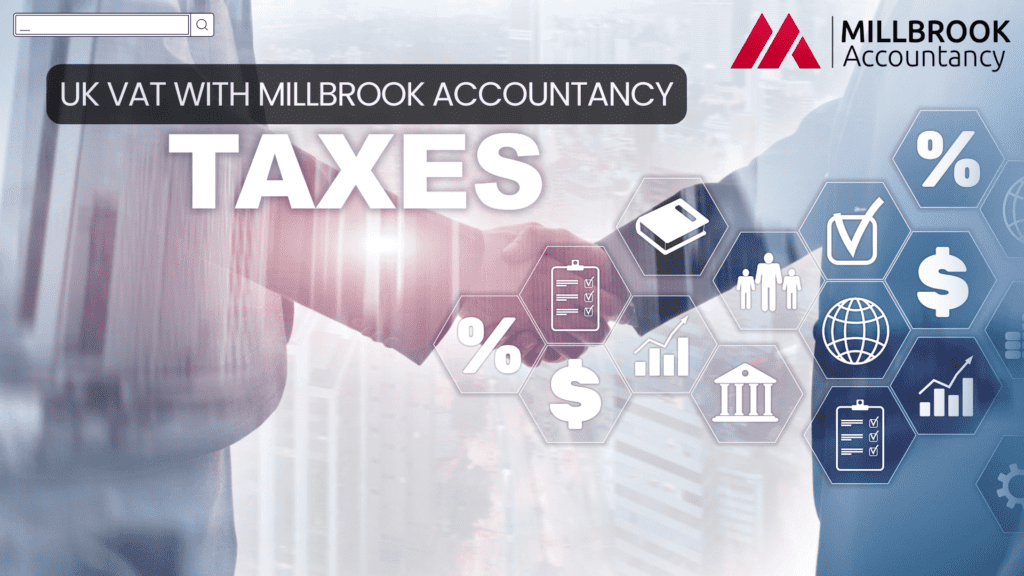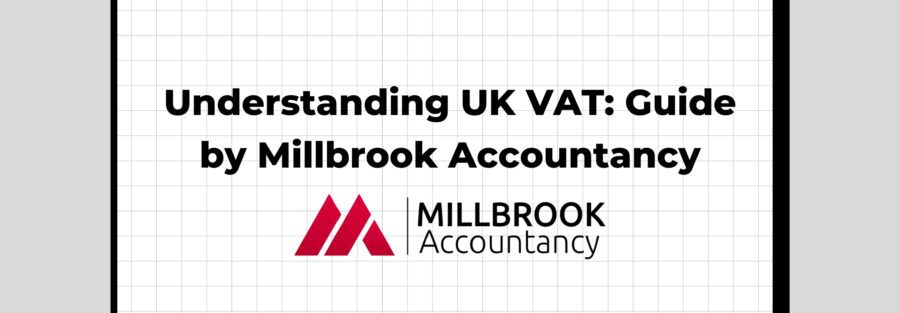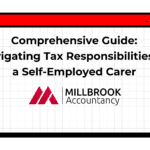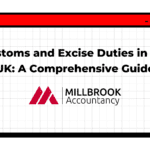In the realm of financial transactions, Value Added Tax (VAT) plays a pivotal role, impacting both businesses and consumers alike. Whether you’re a business owner, a local shopper, or an online consumer in the UK, VAT is an indirect tax that forms a part of the overall cost of goods and services. In this comprehensive guide, we’ll delve into the intricacies of VAT, discuss the UK VAT rate, and explore related topics such as VAT registration, VAT returns, and the benefits of hiring a professional accountant.


What is VAT?
At its core, Value Added Tax is the additional tax that consumers or buyers must pay on the goods and services they purchase. This tax is added at each stage of the supply chain, reflecting the value added at each step.
The VAT Process
VAT is a critical consideration for businesses in the UK, as it involves accounting for the tax based on government guidelines. Registration becomes mandatory when taxable turnover surpasses the VAT registration threshold. Businesses then add VAT to their prices, remitting the collected amount to HMRC after deducting the VAT paid to suppliers.
For efficient management of VAT returns, businesses can turn to professionals like Millbrook Accountancy, offering expertise in accurate record-keeping and timely submissions.
How much VAT is charged in the UK?
VAT rates in the UK vary depending on the type of service or product. While the standard rate is 20%, certain items, like child car seats or domestic energy, attract a reduced rate of 5%. Necessities such as food and clothing incur a 0% VAT rate. For a detailed breakdown, refer to the table below:
| Items | VAT Rate | Category |
|---|---|---|
| Most products/Services | 20% | Standard |
| Some services and essentials | 5% | Regular |
| Food and drink, etc. | 0% | Zero |
| Insurance, health services, etc. | Nil | Exempt |
To determine whether VAT applies to a product or service, consult our VAT checker.
Who should register for VAT?
In the UK, businesses exceeding a taxable turnover of £85,000 in a rolling 12-month period must register for VAT. Voluntary registration, even below this threshold, can be advantageous for reclaiming VAT on business-related expenses.
When to register for VAT?
Businesses monitor their turnover to identify when it exceeds £85,000. Notification to HMRC must occur within 30 days from the end of the breaching month, with registration effective from the first day of the following month.
Example of VAT Registration
A business crossing the threshold in May 2023 would inform HMRC by June 30, 2023, with effective registration from July 1, 2023.
When should the VAT return be submitted to HMRC?
VAT returns are typically submitted quarterly, with the standard filing frequency being every three months—March 31st, June 30th, September 30th, and December 31st. However, smaller businesses with a turnover of less than £1.35 million may opt for annual filing, while monthly filing is required for businesses with high turnovers and a VAT liability exceeding £2.3 million.
Businesses require an HMRC VAT login for online VAT return submissions. Alternatively, accountants can handle this process seamlessly, relieving businesses of login concerns.
Penalties for late submission of VAT
Late submission penalties are determined by a point system. Accumulating penalty points leads to fines, with thresholds varying based on filing frequency—annually, quarterly, or monthly.
Different VAT Schemes in the UK
Various special schemes simplify VAT reporting and payment processes for businesses. Some notable schemes include:
- Flat Rate Scheme (FRS): Ideal for small businesses with minimal input VAT to claim.
- Cash Accounting Scheme: Allows businesses to account for VAT upon payment, not the invoice date.
- Annual Accounting Scheme: Enables yearly VAT returns with monthly or quarterly payments.
- Margin Scheme for Second-Hand Goods: Applies to second-hand goods, calculating VAT on the price difference.
- Retail Scheme: Calculates VAT as a percentage of retail sales, simplifying the process for retailers.
Common Mistakes in VAT Returns
Avoiding mistakes in VAT returns is crucial. Some common errors include:
- Not charging VAT on non-standard supplies.
- Claiming VAT without a valid tax invoice.
- Neglecting VAT on deposits received before invoicing.
- Incorrectly claiming input VAT on motor cars with private use.
Rectifying Mistakes in VAT Returns
HMRC allows corrections for errors, provided the value falls within certain thresholds. Errors under £10,000 or, if exceeding, up to 1% of total sales in Box 6 of the next VAT return do not require reporting to HMRC. Corrections can be made in the subsequent VAT return within a 4-year time limit.
Benefits of Hiring a Professional Accountant for VAT Returns
Engaging a professional accountant for VAT Returns yields several advantages:
- Expertise in VAT regulations.
- Accuracy and compliance in tax calculations.
- Timely submissions, reducing the risk of penalties.
- VAT investigation support.
- Focus on core business activities.
- Identification of opportunities for VAT savings.
- Effective cash flow management.
- Compliance with Making Tax Digital (MTD) requirements.
Choosing the Right Accountant
Selecting the right accountant is crucial for effective financial management. Consider the following factors:
- Qualifications and Experience: Ensure the accountant is Chartered or Certified, with affiliations to professional bodies like ICAEW or ACCA.
- Industry Specialization: Opt for an accountant with experience in your specific business area.
- Availability and Communication: Choose an accountant who is readily available and maintains clear communication.
Conclusion
Operating a business in the UK entails regular VAT return submissions, a task that can be complex and time-consuming. Whether businesses choose to handle this themselves or enlist the expertise of professionals, such as Millbrook Accountancy, the benefits of accurate, timely, and compliant VAT returns cannot be overstated.
For any assistance with your VAT return, contact Millbrook Accountancy. Let us ensure you pay the correct amount of VAT, providing peace of mind and financial stability for your business.





